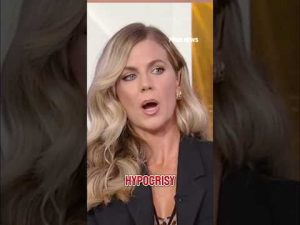Americans watched the latest example of media double standards play out on our screens when ABC briefly suspended Jimmy Kimmel over his tasteless comments about the assassination of conservative activist Charlie Kirk, only to quietly bring him back after a week of hand-wringing and corporate backroom talks. The network’s explanation about “preventing tensions” rang hollow to anyone who remembers the endless indulgence given to left-wing personalities for far worse. Disney’s flip-flop underscores how elite media bend the rules to protect their own while pretending to mourn the loss of civility.
What made this whole episode worse was the obvious role that FCC posturing played in turning a messy, private employment matter into a national drama about free speech and government pressure. FCC Chair Brendan Carr’s warnings to affiliates lit a fuse that forced local broadcasters into immediate decisions about whether to carry Kimmel, and Democrats predictably howled about censorship while ignoring the initial irresponsibility of the host. This isn’t merely about one late-night comedian; it’s about a federal regulator leaning on broadcasters and weaponizing licensing talk for political ends.
Local station owners reacted the only way local leaders can — by protecting their communities and their airwaves. Nexstar and Sinclair pulled the show from scores of ABC affiliates after Kimmel’s remarks, arguing their viewers deserved better, and while Sinclair later reversed course and resumed airing the program, Nexstar publicly refused to simply let the matter fade away. These are private companies making programming decisions; if networks want to loan out public airwaves, they should answer to the communities that hold those licenses.
Megyn Kelly was right to call out the self-pitying performance Kimmel staged upon his return, and she reminded the country that conservative voices have been treated far differently when they step out of line. Kelly’s own firing from NBC after a controversy about Halloween costumes is a live example of how the left’s cancellation machine chews up careers while protecting its favorites. It’s not sympathy for Kimmel we lack; it’s consistency and fairness across the media landscape.
Don’t let Hollywood’s crocodile tears fool you — this controversy was never about “free speech” in the abstract; it was about hypocrisy, selective outrage, and career protection for the well-connected. Kimmel’s past missteps, including blackface sketches years ago, were papered over by the same institutions that immediately crucified conservative figures for far less, proving again that there are two sets of rules in the culture. If the media want to lecture the public about decency, they should start by applying their standards evenly.
Conservatives should demand real accountability: consistent standards from networks, clear boundaries about when and how government regulators can comment on programming, and transparency from media conglomerates about who gets a pass and who gets canceled. With Nexstar still evaluating its position amid a major merger and regulators wagging fingers at broadcasters, this story has real consequences for free expression and the stewardship of the public airwaves. If Americans want fair treatment, they must insist on it — from the anchors in their living rooms to the bureaucrats in government offices.







